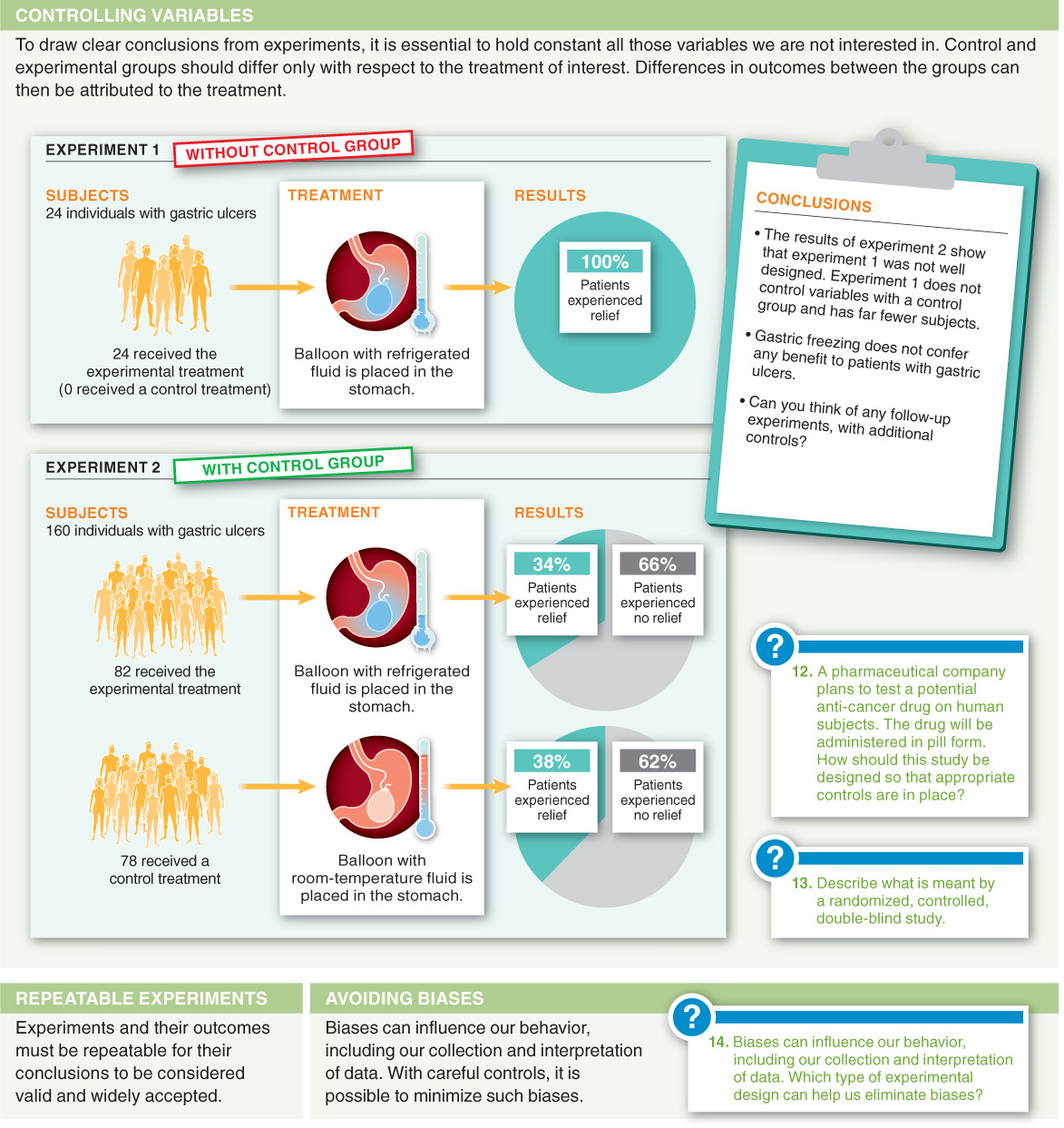1.11–1.14
1.11–Well-designed experiments are essential to testing hypotheses.
To draw clear conclusions from experiments, variables not of interest should be held constant, outcomes must be repeatable, and biases should be minimized.

36
Q
The placebo effect:
- a) is the frequently observed phenomenon that people tend to respond favorably to any treatment.
- b) reveals that sugar pills are more effective than actual medications.
- c) reveals that experimental treatments cannot be proven effective.
- d) demonstrates that most scientific studies cannot be replicated.
- e) is an urban legend.

Which of the following correctly describes a double-
- a) The researchers apply two-
layered blindfolds to prevent the subjects from seeing the treatment drug. - b) Neither the researchers nor the study participants know who is receiving the drug and who is receiving the placebo.
- c) The researchers know who is receiving the drug and who is receiving the placebo, but they do not know what the supposed effects of the drug should be.
- d) The researchers do not know who receives the drug or the placebo, but the participants do.
- e) None of the above are correct.

In controlled experiments:
- a) one variable is manipulated while others are held constant.
- b) all variables are dependent on each other.
- c) all variables are held constant.
- d) all variables are independent of each other.
- e) all critical variables are manipulated.

If a researcher uses the same experimental setup as in another study, but with different research subjects, the process is considered:
- a) an uncontrolled experiment.
- b) intuitive reasoning.
- c) extrapolation.
- d) replication.
- e) exploration.

An independent variable:
- a) can cause a change in a dependent variable.
- b) is generally less variable than a dependent variable.
- c) is plotted on the y-axis in a line graph.
- d) can be controlled less well than a dependent variable.
- e) is typically more important than a dependent variable.
